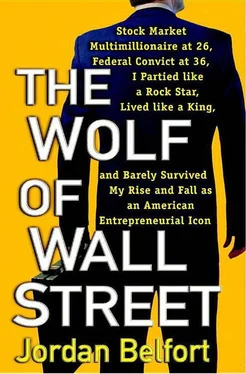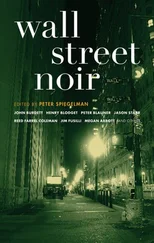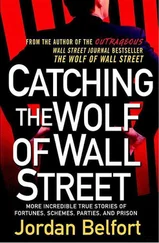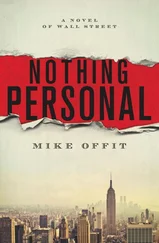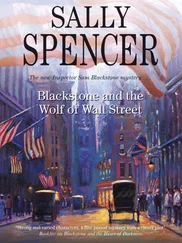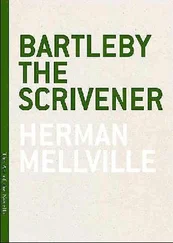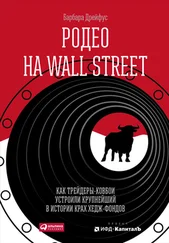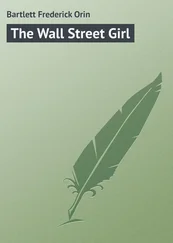And speaking of chief enablers, there was, of course, the luscious Duchess of Bay Ridge, Brooklyn. I guess she turned out all right in the end, didn’t she? She was the only one who’d stood up to me, the only one who had cared enough to put her foot down and say, “Enough is enough!”
But as the first anniversary of my sobriety came and went, I began to notice changes in her. Sometimes I would catch a glimpse of that gorgeous face when she wasn’t aware I was looking, and I would see a faraway look in her eye, a sort of shell-shocked look, peppered with a hint of sadness. I often wondered what she was thinking at those moments, how many unspoken grudges she still held against me, not just for that despicable moment on the stairs but for everything—for all the cheating and philandering and falling asleep in restaurants and wild emotional swings that went hand in hand with my addiction. I asked George about that—what he thought she might be thinking and if there was anything I could do about it.
With a hint of sadness in his voice, he told me that this whole affair hadn’t played itself out yet, that it was inconceivable that Nadine and I could’ve gone through what we had and then just sweep things under the rug. In fact, in all the years he’d been sober he’d never heard of anything like this; the Duchess and I had broken new ground in terms of dysfunctional relationships. He likened Nadine to Mount Vesuvius—a dormant volcano that one day was sure to explode. Just when and with how much ferocity he wasn’t quite sure, but he recommended that the two of us go into therapy, which we didn’t. Instead, we buried the past and moved on.
Sometimes I would find the Duchess crying—sitting alone in her maternity showroom with tears streaming down her cheeks. When I’d ask her what was wrong, she would tell me that she couldn’t understand why all this had to happen. Why had I turned away from her and lost myself in drugs? Why had I treated her so badly during those years? And why was I such a good husband now? In a way, it only made it worse, she’d said, and with each act of kindness I now showed her, she felt that much more resentful that it couldn’t have been that way all those years. But then we would make love, and all would be well again, until the next time I found her crying.
Nonetheless, we still had our children, Chandler and Carter, and we found solace in them. Carter had just celebrated his third birthday. He was more gorgeous than ever now, with his platinum-blond hair and world-class eyelashes. He was a child of God, watched over since that terrible day in North Shore Hospital when they’d told us that he would grow up without his faculties. How ironic it was that since that day he hadn’t had so much as a runny nose. The hole in his heart was almost closed now, and it had never given him a day’s problems.
And what of Chandler? What of my little thumbkin, the former baby genius, who had kissed away her daddy’s boo-boo? Well, as always, she was still a daddy’s girl. Somewhere along the way she had earned the nickname “the CIA,” because she spent a good part of her day listening to everyone’s conversations and gathering intelligence. She had just turned five, and she was wise beyond her years. She was quite a little salesperson, using the subtle power of suggestion to exert her very will over me, which, admittedly, wasn’t all that difficult.
Sometimes I would look at her while she was asleep—wondering what she would remember about all this, about all the chaos and insanity that had surrounded her first four years, those all-important formative years. The Duchess and I had always tried to shield her from things, but children are notoriously keen observers. Every so often, in fact, something would trigger Channy and she would bring up what had happened on the stairs that day—and then she would tell me how happy she was that I had gone to Atlant-ica so Mommy and Daddy could be happy again. I found myself crying inwardly at those moments, but she’d change the subject just as quickly, to something entirely innocuous, as if the memory hadn’t touched her viscerally. One day I would have some explaining to do, and not just about what had happened on the stairs that day but about everything. But there was time for that—lots of time—and at this point it seemed prudent to allow her to enjoy the blissful ignorance of childhood, at least for a while longer.
At this particular moment, Channy and I were standing in the kitchen in Old Brookville, and she was pulling on my jeans and saying, “I want to go to Blockbuster to get the new Rugrats video! You promised!”
In truth, I hadn’t promised anything, but that made me respect her even more. After all, my five-year-old daughter was assuming the sale on me—making her case from a position of strength, not weakness. It was 7:30 p.m. “Okay,” I said, “let’s go right now, before Mommy gets home. Come on, thumbkin!” I extended my arms toward her and she jumped into them, wrapped her tiny arms around my neck, and giggled deliciously.
“Let’s go, Daddy! Hurry up!”
I smiled at my perfect daughter and took a deep, sober breath, relishing her very scent, which was glorious. Chandler was beautiful, inside and out, and I had no doubt that she would grow strong, one day making her mark on this world. She just had that look about her, a certain sparkle in her eye that I’d noticed the very moment she was born.
We decided to take my little Mercedes, which was her favorite, and we put the top down so we could enjoy the beautiful summer evening. It was a few days before Labor Day, and the weather was gorgeous. It was one of those clear, windless nights, and I could smell the first hints of fall. Unlike that fateful day sixteen months ago, I seat-belted my precious daughter into the front passenger seat and made it out of the driveway without smashing into anything.
As we passed through the stone pillars at the edge of the estate, I noticed a car parked outside my property. It was a gray four-door sedan, maybe an Oldsmobile. As I drove past it, a middle-aged white man with a narrow skull and short gray hair parted to the side stuck his head out the driver’s side window and said, “Excuse me, is this Cryder Lane?”
I hit the brake. Cryder Lane? I thought. What was he talking about? There was no Cryder Lane in Old Brookville or, for that matter, anywhere in Locust Valley. I looked over at Channy and felt a twinge of panic. In that very instant I wished I still had the Roccos watching over me. There was something odd and disturbing about this encounter.
I shook my head and said, “No, this is Pin Oak Court. I don’t know any Cryder Lane.” At that moment I noticed there were three other people sitting in the car, and my heart immediately took off at a gallop… Fuck—they were here to kidnap Channy!… I reached over, placed my arm across Chandler’s chest, and looked her in the eyes and said, “Hold on, sweetie!”
As I stepped on the accelerator, the rear door of the Oldsmobile swung open and a woman popped out. She smiled, then waved at me and said, “It’s okay, Jordan. We’re not here to hurt you. Please don’t pull away.” She smiled again.
I put my foot back on the brake. “What do you want?” I asked curtly.
“We’re from the FBI,” she said. She pulled a black leather billfold from her pocket and flipped it open. I looked…and, sure enough, those three ugly letters were staring me in the face: F-B-I. They were big block letters, in light blue, and there was some official-looking writing above and below them. A moment later the man with the narrow skull flashed his credentials too.
I smiled and said ironically, “I guess you guys aren’t here to borrow a cup of sugar, right?”
They both shook their heads no. Just then the other two agents emerged from the passenger side of the Oldsmobile and flashed their credentials as well. The kind-looking woman offered me a sad smile and said, “I think you should turn around and bring your daughter back inside the house. We need to talk to you.”
Читать дальше
